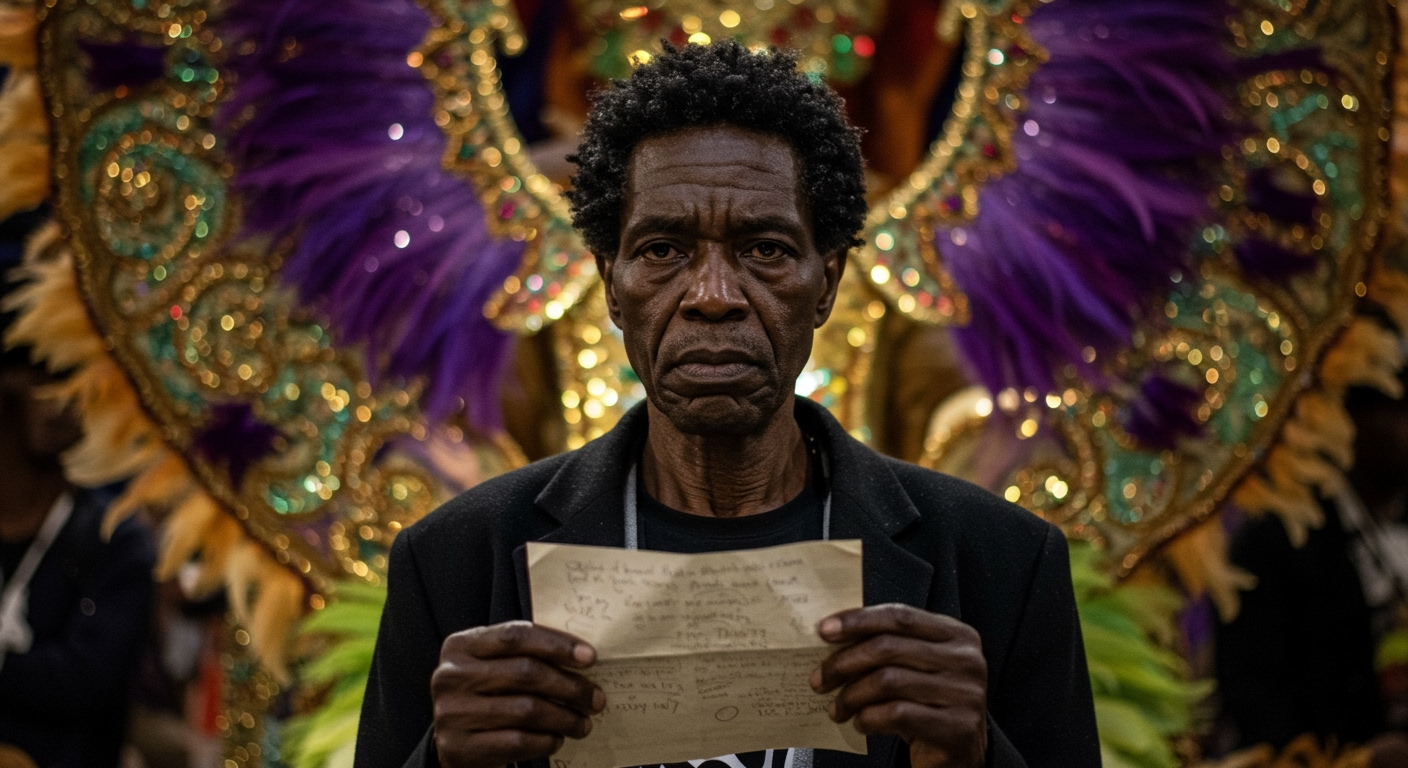London, UK – The future of the iconic Notting Hill Carnival, a cornerstone of West London’s cultural landscape and one of the world’s largest street festivals, is reportedly in jeopardy, prompting an urgent plea for government intervention from prominent Windrush campaigners.
Advocates for the Windrush Generation, who have themselves navigated years of systemic injustice, are warning that the potential loss or curtailment of the carnival would represent a profound blow, adding “insult to injury” to a community that has contributed immeasurably to British society.
A Call for Urgent Aid
The chairman of the Notting Hill Carnival board, identified in reports as Ian Comfort, has voiced significant concerns regarding the event’s financial stability and long-term viability. According to Mr. Comfort, the carnival’s very future is under threat, a situation he described as precarious.
In response to this escalating crisis, Mr. Comfort took decisive action, sending a formal letter to the UK’s Culture Secretary, Lisa Nandy, on Wednesday, June 18, 2025. The letter conveyed the urgent need for government funding to safeguard the event and ensure its continuity for years to come.
Significance Beyond Celebration
For Windrush campaigners and many others, the Notting Hill Carnival is far more than just a summer festival. It is a vibrant, living testament to the history, culture, and resilience of Caribbean communities in the UK, particularly those who arrived from the Commonwealth.
Human rights lawyer and campaigner Jacqueline McKenzie, widely recognized for her tireless work assisting victims of the Windrush scandal, underscored the immense significance of the carnival. Ms. McKenzie highlighted its importance on both a national and international stage, describing it as a vital expression of Black British identity and a crucial element of the UK’s diverse cultural fabric.
Professor Vernon, another figure vocal in the call for support, articulated the deep pain caused by the current threat to the carnival’s existence. He emphasized that this uncertainty is particularly poignant and difficult to bear given the recent history of injustices and hardships faced by members of the Windrush Generation. Professor Vernon described the Notting Hill Carnival not just as an event, but as a powerful celebration of resistance, resilience, and unity. In his view, it represents the best of Britain, showcasing the positive impact of multiculturalism and the enduring spirit of communities that have overcome adversity.
The Weight of History
The plea from Windrush campaigners is steeped in the historical context of their own struggles. The Windrush scandal saw thousands of individuals, many of whom arrived legally in the UK decades ago, wrongly detained, deported, and denied access to healthcare, housing, and benefits, despite their legal right to be in the country. Campaigners like Jacqueline McKenzie have been at the forefront of advocating for justice and compensation for those affected.
Against this backdrop, the potential loss or severe scaling back of the Notting Hill Carnival is felt acutely. The carnival, which originated in the 1960s partly as a response to racial tensions and riots, has evolved into a massive public celebration of Caribbean culture, attracting millions of attendees annually. Its roots are deeply intertwined with the experiences of the Windrush Generation and their descendants.
The campaigners argue that allowing the carnival to falter due to lack of funding would not only strip London of a globally renowned cultural event but would also represent a failure to support and honour the communities whose heritage it celebrates – communities that have already endured significant hardship and betrayal.
Government Acknowledgment, But No Funding Commitment Yet
A spokesman for the UK government acknowledged the cultural importance of the Notting Hill Carnival. The spokesman described the event as an “important community event.” However, the statement, as reported, did not include any specific commitment to providing the urgent funding requested by the carnival’s chairman.
Instead, the government spokesman’s comments focused on operational aspects, stating that organizers should continue to collaborate closely with local authorities and the police. This collaboration, the spokesman indicated, is essential to ensure the safety and security of the event, particularly given its scale and the large crowds it attracts.
While safety is undoubtedly a critical consideration for any major public event, campaigners fear that without adequate financial support, the organizational capacity to ensure safety – let alone deliver the carnival itself – may be severely hampered.
An Uncertain Future
The coming weeks are critical for the future of the Notting Hill Carnival. As Windrush campaigners and carnival organizers await a substantive response from the government regarding the funding request made to Culture Secretary Lisa Nandy on June 18, 2025, the fate of this vital cultural institution hangs in the balance. The outcome will not only determine the immediate future of a beloved London event but will also send a significant message about the value placed on the heritage and contributions of the Windrush Generation and broader Black British communities.





